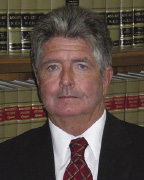


As the old adage goes, “what goes around comes around.” In this epic battle for the rights to construct a digital billboard on the north shore of Massachusetts, counsel for Clear Channel Outdoor, Inc., says they have finally exposed the small town politics that served to block their client’s billboard permit in Salisbury, Mass. After five years of litigation, the courts have annulled the zoning board’s decisions and ordered the ZBA to properly consider the 2014 permit application in a manner within the bounds of the law and due process.
In order to construct an electronic billboard in the Commonwealth of Massachusetts, an applicant or developer must go through a two step process:
(a) Obtain approval {special permit} from the town wherein the proposed sign will be located, and
(b) Then obtain a permit from MassDOT. Nothing prohibits the town from permitting two billboards less than 1000 feet apart but, should that be the case, 700 C.M.R. 3.17(5)(g) prohibits the state from then permitting both.
Clear Channel signed a billboard lease with a property owner having visibility along I-95 in Salisbury. A billboard competitor, Northvision, signed a substantially similar agreement with an abutter also having highway visibility. Each billboard company then sought a special permit to construct a two-sided digital billboard. After a June 24, 2014 ZBA hearing at which both applications were heard, ZBA found that both parties established the requisite hardship and also satisfied all other applicable regulations relative to electronic billboards. However, while ZBA unanimously granted a special permit to Northvision, it denied by a 2-2 vote Clear Channel’s special permit.
Clear Channel filed suit in Essex County Superior Court pursuant to G.L. c. 40A sec. 17, seeking to annul both ZBA decisions on grounds that they were legally untenable, arbitrary, capricious, and against the weight of the evidence due to being the combined product of non-zoning considerations, undue influence, and conflicts of interest on the part of the two ZBA members that voted to deny Clear Channel’s permit while granting the competitor’s.
The claim of conflict of interest was based on one ZBA member being employed by another business entity owned by the principal of Northvision and another ZBA member being a relative of the property owner that contracted for the Northvision billboard location.

During the course of the Superior Court action, these two ZBA members testified as to those relationships. Furthermore, both testified that they each based both of their votes [1 each in favor of Northvision and 1 each against Clear Channel] on very specific grounds unrelated to zoning, including (a) which special permit application had been filed first, and (b) their firmly held disagreement with the legal procedure that leaves MassDOT with the final decision in the event a town grants two electronic billboard permits within 1000 feet. Following such testimony, in the form of a Motion For Entry of Judgment, ZBA expressly admitted that those two votes to deny the Clear Channel special permit “would not withstand judicial scrutiny” since the bases of such votes “were unrelated to zoning interests.”
Partial Judgment was entered accordingly directing ZBA to issue Clear Channel its local permit. At that point, however, Clear Channel’s local permit for an electronic billboard had no value whatsoever, since Northvision had already taken its own local permit for a billboard located less than 1000 feet away to MassDOT and obtained the second and final permit needed. Due to the above-cited 1000-foot rule applicable to the state permit, Clear Channel could not take to MassDOT the local permit it was issued pursuant to the court’s order. Clear Channel filed a Motion for Entry of Judgment submitting that, given ZBA’s admission within its own Motion For Entry of Judgment, which was allowed, it must follow as a matter of fact and law that the same two members’ votes approving Northvision’s permit likewise would not withstand judicial scrutiny as they were admittedly not based on zoning interests and, rather, were grounded on improper considerations aimed at controlling the global outcome. Clear Channel’s motion for judgment was denied.
The matter proceeded to a bench trial on the sole, narrow issue of the legally tenability of Northvision’s special permit. The trial judge allowed motions in line to exclude any evidence of (a) ZBA members’ mental processes and of (b) circumstances surrounding the ZBA’s denial of Clear Channel’s permit as said denial had since been reversed. As such, counsel for Clear Channel was not allowed to call as witnesses the two ZBA members whose votes were at the heart of the case. After a bench trial at which very little evidence could be presented, a Motion for Involuntary Dismissal was filed by Northvision. It was allowed, and Judgment of Dismissal entered accordingly.
The Judgment of Dismissal was accompanied by certain findings of fact and rulings of law made by the trial judge. Included was a ruling that Clear Channel, while obviously having standing to challenge the denial of it’s special permit, did not have legal standing to challenge the granting of Northvision’s permit since the financial loss of not being able to construct a sign at the desired location does not qualify Clear Channel as a person aggrieved under the Zoning Act.
Clear Channel appealed the Superior Court’s evidentiary rulings and the ruling on the issue of standing. Attorney Jason Scopa, of Law Offices of Peter E. Flynn, P.C. in Saugus, Mass., persuasively argued Clear Channel’s position before the Massachusetts Appeals Court. Given it’s indisputable standing to challenge ZBA’s denial of its own permit, attorney Scopa said, “It cannot be said that Clear Channel does not also have standing to challenge the granting of the abutter’s permit when the entire premise of the case was that both ZBA decisions resulted together, as one, from bad faith, undue influence, and certain members’ consideration of matters unrelated to zoning.” Clear Channel further argued that the zoning scheme, including that related to the permitting of special permits for electronic billboards, is designed to give all taxpayers and citizens the right to compete fairly for any and all benefits that come with available zoning relief. If the zoning scheme only allows certain permits in certain places, all applicants must be granted equal opportunity and protection, and this may not change by the mere fact that, in this particular matter, tangible damages arising to Clear Channel by the uneven playing field are only monetary in nature.
Addressing Northvision’s argument on appeal that standing cannot be established by mere business competition, the Appeals Court stated, “More is at issue here than business competition.” The Appeals Court added that abutters enjoy a presumption of standing and the interdependent local and state license requirements at issue in the case were such that the decision granting a special permit to Northvision directly affected the abutter’s use and enjoyment of his property, which is clearly an interest protected by the zoning bylaw. The Appeals Court also determined that it was abuse of discretion for the trial judge to exclude evidence of the two ZBA members’ mental processes and to exclude the evidence of the circumstances surrounding the ZBA’s original denial of Clear Channel’s permit.
After the SJC denied Northvision’s request for Further Appellate Review, the Superior Court entered a new judgment, “(a) annulling the decision of the board allowing Northvision’s special permit application, (b) annulling the decision of the board denying Clear Channel’s special permit application, and (c) directing the board to hold such further proceedings as may be necessary on the two applications, conducted in such manner as not to defeat the two-step, municipal-state process contemplated by the legislature.”
Peter Flynn and Jason Scopa are attorneys specializing in eminent domain, environmental, ATB and complex real estate valuation issues at the Law Office of Peter E. Flynn, P.C., Saugus, Mass.




